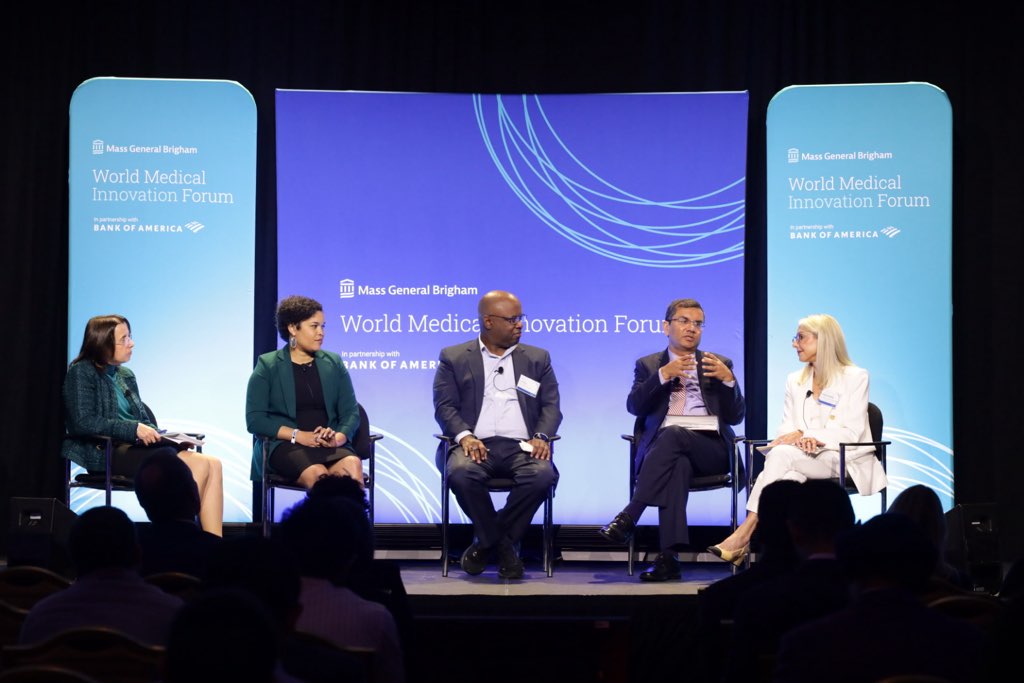WMIF MAIN SITE
2026 Event Site
Mass General Brigham’s Home Hospital program is transforming the landscape of acute care delivery, offering patients the opportunity to receive hospital-level treatment in the comfort of their own homes. With a capacity milestone of 70 beds, Mass General Brigham now runs the largest Home Hospital program in the United States. This innovative model improves patient satisfaction and addresses industry-wide challenges by reducing hospital overcrowding and lowering costs.
At the 2024 World Medical Innovation Forum, Mass General Brigham showcased the program’s remarkable growth during a panel session titled “Hospital at Home.” Led by Heather O’Sullivan, MS, APRN, President of Mass General Brigham Healthcare at Home, and Joanna Gajuk, Health Care Facilities and Managed Care Analyst at BofA Global Research, the discussion focused on the exciting shift of inpatient care to home settings. “In the next 5 years, it’s expected that 30% of inpatient care will transition to the home,” said O’Sullivan, highlighting the tremendous market opportunity of home-based care.
O’Neil Britton, MD, Chief Clinical Integration Officer at Mass General Brigham, emphasized how home hospital care creates a “win-win” scenario, improving outcomes for patients while easing the burden on traditional hospital infrastructures. He noted that many patients, even those with acute illnesses, can be effectively treated at home, leveraging all available care settings. This approach not only enhances the patient experience but also frees up critical hospital resources.
Technology plays a pivotal role in scaling the home hospital model. As Mass General Brigham continues to grow its program, key partnerships with companies like Best Buy Health—responsible for providing in-home technology—are crucial to its success. Chemu Lang’at, Chief Operating Officer for Best Buy Health, emphasized the importance of providing the infrastructure and support necessary to bring medical technology into patients’ homes. To ensure equitable access, Lang’at advocates for an equity-centered approach to program development. By addressing disparities in access and making the technology more user-friendly, the goal is to improve overall care while ensuring that every patient can benefit from these innovative services.
Jatin Dave, MD, Chief Medical Officer for MassHealth, shared insights from a randomized controlled trial led by David Levin, MD, at Mass General Brigham, which demonstrated that the hospital-at-home model lowers overall costs. Dave explained that this cost reduction can be attributed to several factors, including a streamlined infrastructure that reduces fragmentation—a significant cost driver. As the Home Hospital program continues to scale, panelists expressed optimism that efficiencies will grow alongside it. At full maturity, the hospital-at-home model is expected to reduce costs and enhance care quality and productivity, ultimately improving patient experiences.
The discussion made it clear that hospital-at-home care is reshaping healthcare delivery by providing high-quality, personalized treatment while easing the strain on traditional hospital facilities. As the program continues to expand, it holds the potential to drive even greater improvements in patient care.
Watch the full panel session for a deeper dive into the insights shared during the discussion.